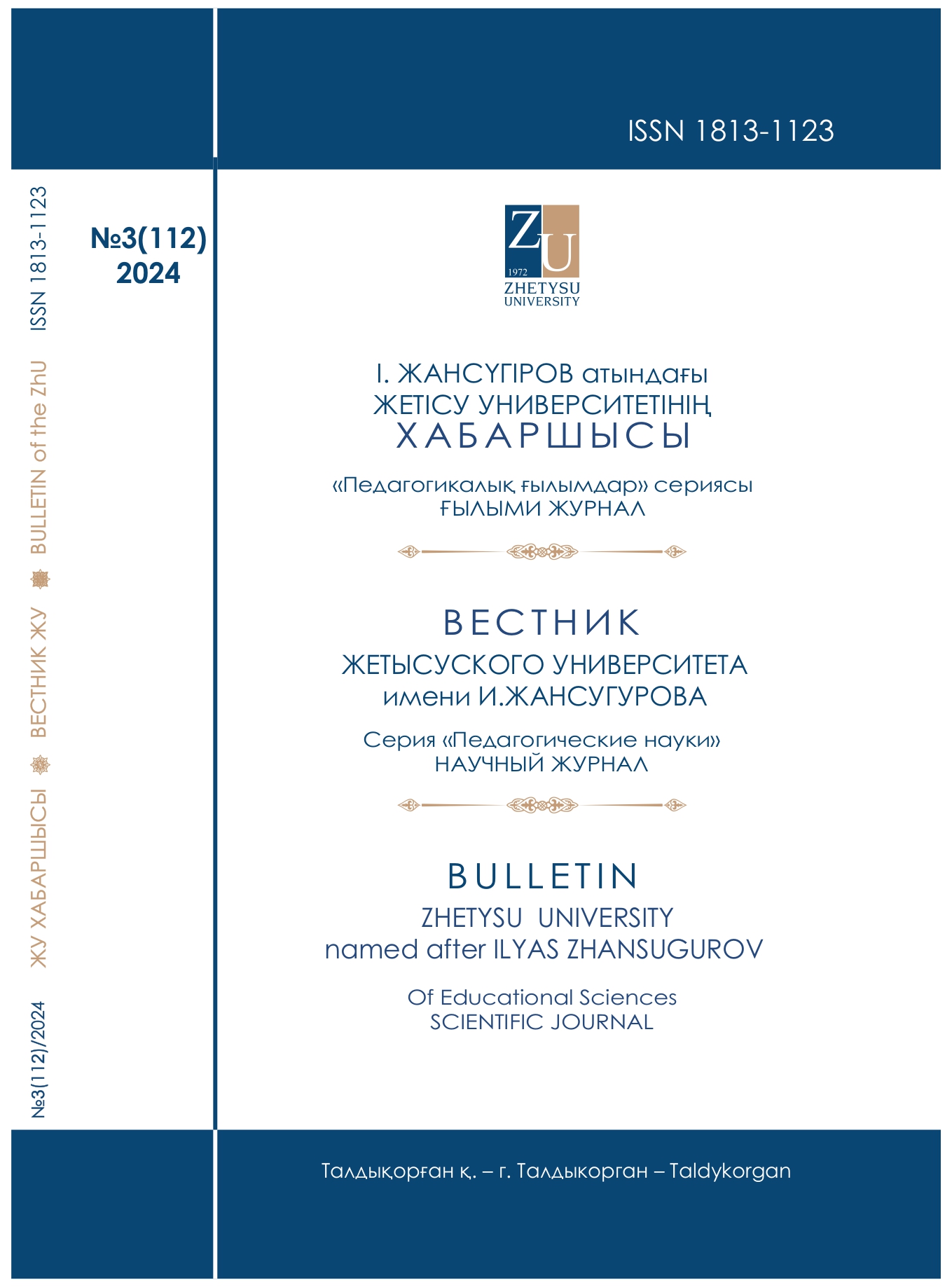COMMUNICATIVE ASPECTS OF THE FOREIGN LANGUAGE TEACHING PROCESS
DOI:
https://doi.org/10.53355/ZHU.2024.112.3.011Keywords:
Communication methods, foreign language teaching, Kazakhstan, psychological barriers, differentiated approach, digital technologies, role plays, project methodAbstract
The purpose of the article is devoted to the study of the communicative aspect of the process of
foreign language teaching in the educational context in Kazakhstan. It examines the main
communicative teaching methods such as role-playing, immersion and project-based learning and
their impact on the development of students' communication skills. The study contributes to the
growing body of research on communicative language teaching, with a particular focus on
Kazakhstan's educational context. It highlights the role of communicative teaching methods in
improving students' language skills and confidence, which is crucial in a globalized, multilingual
world. The research utilizes a qualitative approach, involving literature review and analysis of case
studies or empirical evidence from educational settings in Kazakhstan. The study finds that
communicative teaching methods significantly enhance students' language competence and
communicative confidence. The research provides valuable insights into the practical application of
communicative teaching methods in Kazakhstan's educational system, a country where language
learning is central to fostering global communication skills. The findings of the research are highly
relevant for language teachers, curriculum developers, and educational policymakers. They provide
evidence-based recommendations for integrating communicative teaching methods into foreign
language instruction to enhance students' language abilities. The study identifies the main challenges
faced by teachers and students, such as psychological barriers associated with uncertainty and fear of
making mistakes, as well as heterogeneity in students' preparation levels. The author focuses on the
need for a differentiated approach, the use of technology and digital tools in the educational process
and the importance of continuous professional development for teachers. The results of the study
confirm the effectiveness of communicative methods in foreign language teaching in Kazakhstan and
underline their importance for increasing students' linguistic competence and confidence in
communicating in a foreign language in the context of globalization and multilingualism.

 ҚАЗ
ҚАЗ РУС
РУС ENG
ENG
